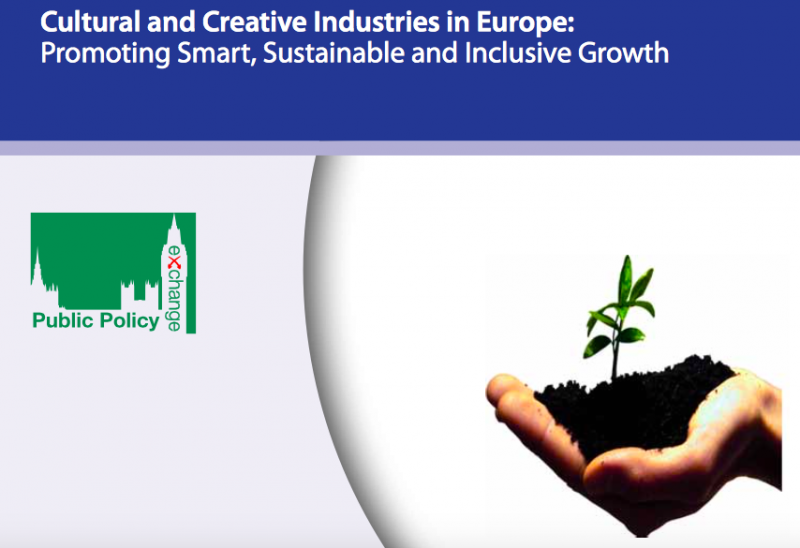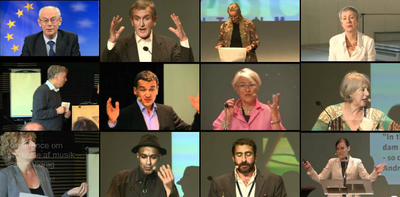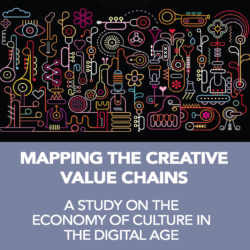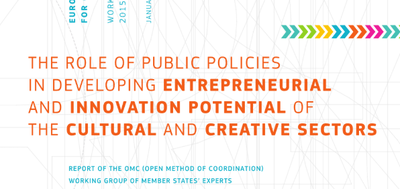Brussels | Cultural and Creative Industries in Europe | symposium

![Screenshot 2015-12-10 06.27.01]()
An international symposium is organised in Brussels on 21 January on
Cultural and Creative Industries in Europe: Promoting Smart, Sustainable and Inclusive Growth. The event is coordinated by Public Policy Exchange UK and registration is open.
Date: Thursday 21st January 2016
Time: 10:00am — 4:30pm
Venue: NH Brussels Carrefour de l'Europe
This international symposium will offer the opportunity to discuss potential solutions for the development of cultural and creative industries in the EU. The conference will also examine how cross-sector and cross-border collaborations can lead to a stronger and more competitive cultural sector, fostering European identity and social cohesion. Moreover, the symposium will explore the economic value of cultural and creative industries as well as the potential of digital cultural heritage. The Symposium will support the exchange of ideas and encourage delegates to engage in thought-provoking topical debate.
According to the European Commission, cultural and creative industries (CCI) are responsible for around 3.5% of all EU products and services annually, and employ 6.7 million people, or 3% of the European workforce. They represent a significant part of Europe’s identity and growth, by offering a key source of creativity and innovation, as well as contributing significantly to social cohesion and well-being. Cultural and creative industries boast €558 billion in value added to GDP (4.4% of total EU GDP) according to the 2014 TERA / Forum d’Avignon Study. However, in spite of their substantial contribution to the EU’s economy in terms of growth and job creation during the current economic downturn, cultural and creative sectors still remain considerably undervalued and face numerous challenges, particularly in terms of their ability to access start-up capital and financing.
In order to tackle these challenges and support CCIs, the European Commission has introduced the Creative Europe Programme. Building upon previous Culture and MEDIA programmes, the CEP (2014-2020), aims to help the cultural and creative sectors seize the opportunities of the digital age and globalisation. With a total budget of €1.46 billion, the programme will stimulate cross-border cooperation among SMEs in the cultural heritage sector and will also support policy work undertaken in the framework of the 2015-2018 Work Plan for Culture, adopted by EU Culture Ministers in December 2014 in order to improve and further develop cultural and creative sectors. Further funding for cultural heritage is provided through the European Structural and Investment Funds (€351 billion for regional policy) and Horizon 2020 (€80 billion for research), together with a financial guarantee facility of up to €750 million for small businesses active in the sector to be established in 2016 which will provide security to financial intermediaries who take risks in granting loans for cultural and creative activities.
Furthermore, given the constant evolution of the cultural and creative sectors, there is also a need to develop the skills of people active in these industries through education and training as well as to facilitate mobility for cultural professionals. With culture and digital technology becoming more and more intertwined, it is also necessary to encourage re-use of digitised cultural works across the EU. Therefore, projects such as Europeana and the Initial Training Network for Digital Cultural Heritage: Projecting our Past to the Future( ITN-DCH) are of great significance as they bring together the digitised content of Europe’s galleries, libraries, museums, archives and audiovisual collections. Linking creativity with technology, the projects offer a way to immerse in the past as well as preserve and acquire heritage.
Delegates will:
- Explore the measures in place to promote and safeguard cultural and creative industries at the European level
- Assess the economic potential of Cultural and Creative Industries
- Discuss and support solutions to encourage talent and skills development within CCI
- Examine the innovative and social contribution of digital cultural heritage
Registration and fees






